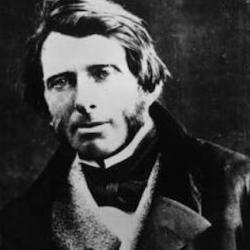“Giving oneself up to sleep can constitute the worst of abandonments,” writes Jean-Louis Chretien (Hand to Hand), “wherein we abandon another person to his solitude and his distress by withdrawing ourselves from the common world and from our community with him. Our eyelids close upon our weary gaze, and our ears become deaf to the other’s voice. One can thus leave someone without even moving away simply by dozing off. The being who is asleep, however physically close he may be, stays in the inaccessible distance of his withdrawal.”
Chretien analyzes paintings of sleep—the disciples in Gethsemane, sleeping figures in depictions of ancient myths, the sleep of Noah. Bellini’s painting of Ham spying on his naked father highlights the vulnerability and shame of sleep.
The “obscene” sleep of Noah “reveals a fragility of the human body abandoned, offered, and exposed without measure to the gaze and the mockery of others, deprived of any possibility of withdrawal or resistance.” Noah’s “is the body of a victim. Not the victim of an act of violence, but of a gaze that causes shame. To have been, without knowing it and despite oneself, an object of mockery for others is the extremity of shame.”
By showing Ham’s brothers, the painting “juxtaposes the two possibilities open to us in front of this exposition of a defenseless body: that of a sense of decency, which does not want to see anything that the other did not want to show, a filiality that can be universalized, in which the sons become themselves paternal with regard to the father delivered up to outrage; or the complete opposite possibility of a mockery that causes shame, and spreads it.”
If sleep exposes us to the possibility of shame, it also involves the shedding of protections and masks. Noah is sleeping and naked, doubly vulnerable: “To fall asleep is for all intents and purposes to deliver oneself up to others. But this delivery can also be a way to rely upon the other, for example, to rely upon his respect, a respect all the more great in that we are precisely no longer in a position to command it or to make it prevail. The nudity of man is one, here, with his fragility, but also with trust.”















